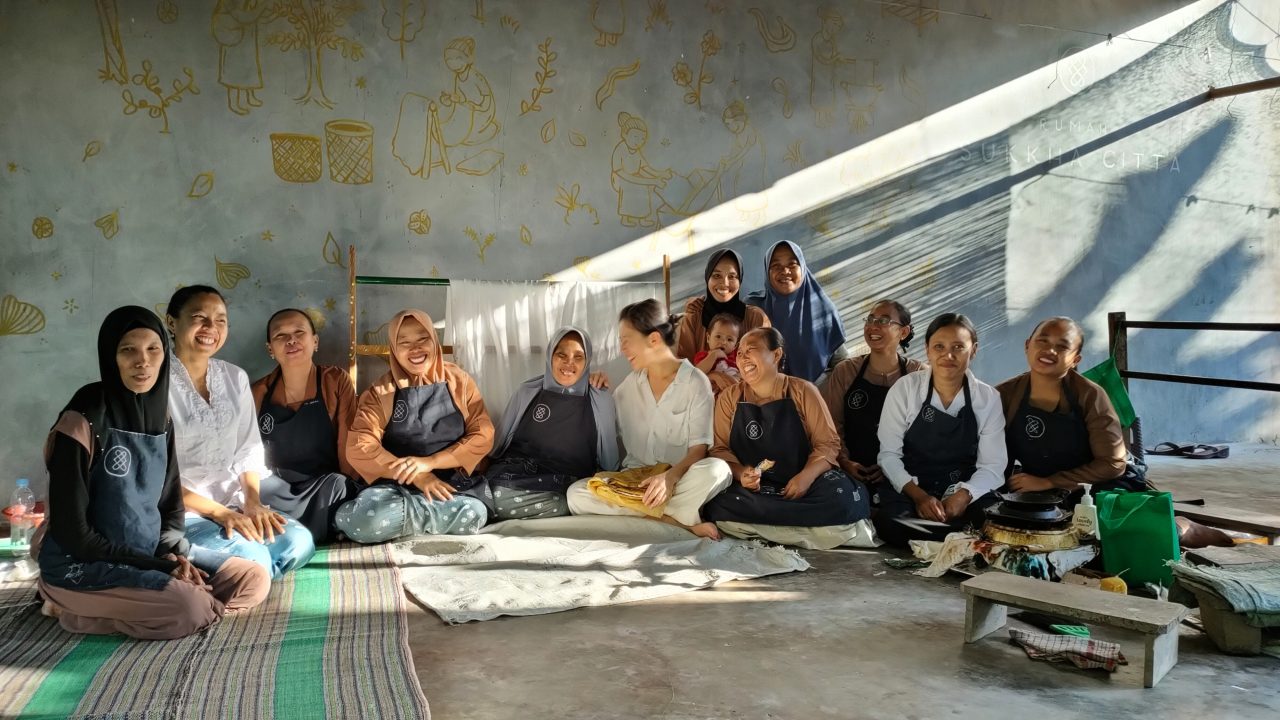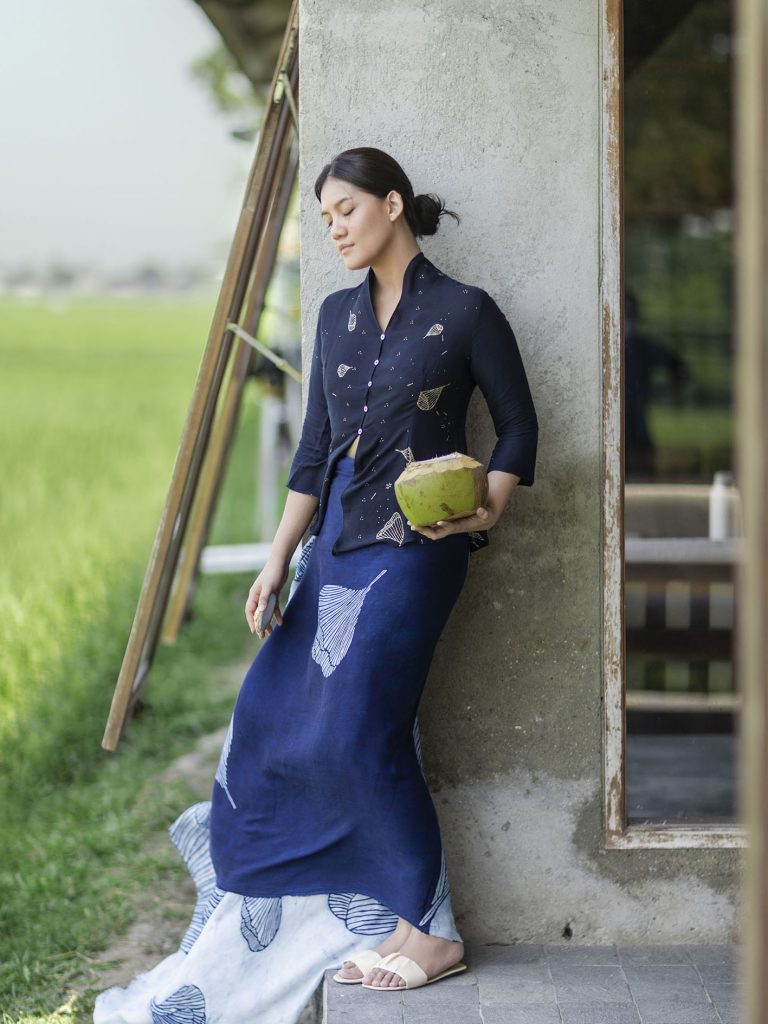
Call it serendipity: After being first introduced to—and enraptured by—Indonesian fashion label SukkhaCitta by Zerrin founder Susannah Jaffer when I attended her pop‑up opening at Anchorpoint sometime in late April, I had the opportunity to meet its dynamic founder Denica Riadini‑Flesch in the flesh at the 2023 Cartier Women’s Initiative Speaker Series in Singapore. Which eventually led to this: Riadini‑Flesch, a self‑described “nerd who cares”, and I settling down in a meeting room in Pullman Singapore Orchard on a sunny afternoon, where we talk about achieving sustainability in fashion, redefining success, and why looking to the past may actually be the way to creating a better future.
GRAZIA Singapore: SukkhaCitta is a fashion label with a very interesting concept: Not only is it a farm‑to‑closet brand, meaning it tracks its entire production process, it also empowers women and gives back to communities in Indonesia’s rural countryside. Tell us, What motivated you to start a label with such lofty ambitions?
Denica Riadini‑Flesch (DRF): I was a trained development economist—imagine working in community development in a non‑governmental organisation, making a lot of reports. At one point, I felt like what we were doing didn’t really translate to real impact on the ground; I didn’t feel like what I was doing had that real, tangible impact that I wanted from my work.

So I started to use my savings to go village to village—if we’re supposed to solve poverty, I’d think you can’t solve it by just being in the city, right? You need to go to the villages and meet the people you’re actually serving. That really allowed me to meet these ibus, these women who’re working from home, making fabrics by hand. It was the first time I saw clothes being made by these women with their hands, and while it was really beautiful, it was also really heartbreaking for me to see the reality that they were living in. The deeper I got into it, the more I found; apparently 98 per cent of the women who make our clothes don’t even earn a living wage. This is a global issue.

That’s terrible.
DRF: So the initial idea for SukkhaCitta was, what if I could create a bridge? What if I could connect people all around the world with clothes that connect them with these mothers who are sustaining our heritage and culture, working from home, outside the factories, and making sure that all the hands that make these clothes can earn a living wage? It was really about connecting consumers with the makers, and ensuring the makers get the visibility and value that they deserve.

Your collection also feels seasonless. The pieces are timeless; meant to be worn again and again.
DRF: Thank you. That’s really one of the things that we want as a fashion brand. Paradoxically, we define success as when we can help our consumers have less clothes. That’s really a metric for us: When we can help our consumers have less stuff, but more meaning—we offer free repairs, as well as re‑dyeing services. We have like a whole wedding atelier programme going on too, and a lot of brides choose us because of [these services]. They can wear something white on the day of their wedding and afterwards, they can alter it and re‑dye it, and then it becomes a completely new dress.

In your opinion, what else can fashion brands do to become more sustainable in their practices?
DRF: I think it’s not just about fashion brands, but all businesses generally—it’s time to really ask the hard questions of why we actually exist, and ask what the world actually needs, instead of what we want. Because if you think about it, every year, all businesses—no exception—will talk about growth goals, not recognising that the resources on our planet are finite. So there’s this contradiction that I think needs to be addressed: There’s no such thing as infinite growth, but we’re running our businesses as if it is infinite. So I’d really love to have fashion brands, founders, entrepreneurs, investors, really think about the kind of legacy they want to create that goes beyond annual performances. It’s time that we—as consumers, as designers, as writers, as entrepreneurs—redefine what success should mean.
